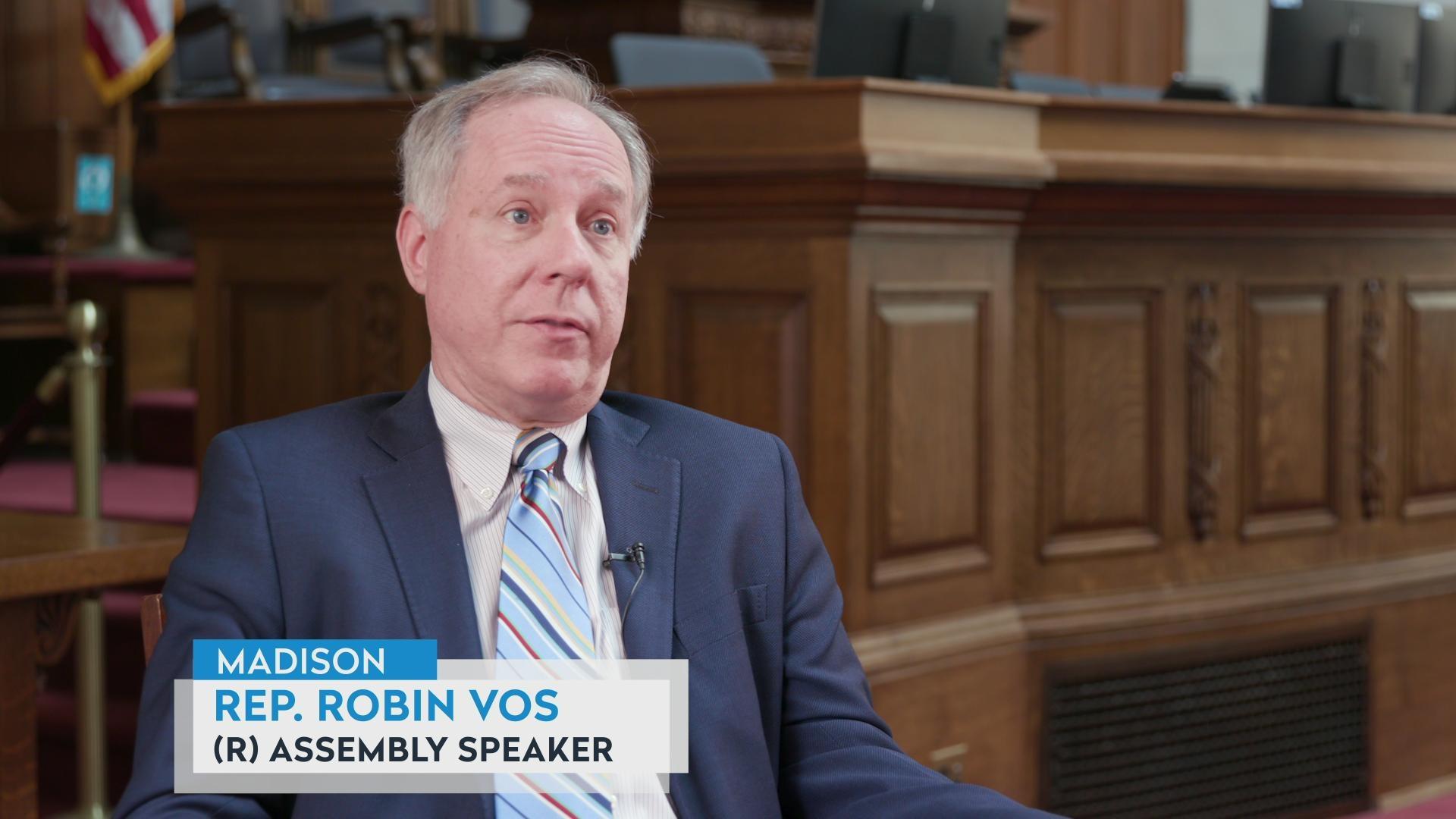Frederica Freyberg:
This month, you may hear less lawnmower sound and more buzz about “No Mow May.” With declining bee populations concerning the scientific community, one Wisconsin biologist took action in his own backyard. Our next guest brought “No Mow May” to Appleton three years ago, and the idea has bloomed across the state and the country. Israel Del Toro joins us from Appleton. Thanks very much for being here.
Israel Del Toro:
Thanks for having me. It’s a pleasure to talk to you.
Frederica Freyberg:
So how did this idea take hold in Appleton and continue to pollinate elsewhere?
Israel Del Toro:
Yeah, definitely it generated a lot of buzz. Sorry about all the bee puns. But yeah, I can’t help it anymore. But it generated a lot of buzz in town. There’s people who love it, people that hate it, but it’s really overall a great tool for communicating and educating our neighborhood about pollinator awareness and making sure that our pollinators are being protected. As you may have heard, pollinators are in decline globally, so this is a way to get that conversation started just here in our neighborhood.
Frederica Freyberg:
Why is May the month to hold back on bringing out the lawnmower?
Israel Del Toro:
Yeah, why not “No Mow May” — or why not “No Mow June?” The idea here is pretty simple. We live up in the north — midwestern U.S., and what that allows us to do is that May is a time period where things are just starting to wake up out of hibernation. So just now, you start seeing bees buzzing around. And so right now as species are coming out of hibernation is a critical period to provide them foraging resources they might not have. By the time June rolls around, there’s a whole suite of plants available to them to choose from, but that’s why those early blooming species like dandelions and clovers are really important to boost our pollinator population numbers here in Wisconsin.
Frederica Freyberg:
So I want to let you know we did assign our videographer to find some bees but he did not. Have you been able to see positive results from the practice of “No Mow May” yet?
Israel Del Toro:
Absolutely. Yeah, absolutely. The first year we did this study was in 2020 and we measured bee biodiversity here in the city of Appleton. What we found was that because of the practices of “No Mow May” or reducing our mowing intensity, we increased pollinator abundance five times and pollinator diversity three times. So that’s the number of species is three times higher in areas that are not mowed relative to areas that are mowed. So it’s really promising to see these increases. We saw the same trend last year when we expanded to other cities across the state and we hope to keep doing in our neck of the woods for the foreseeable future.
Frederica Freyberg:
Meanwhile places like Little Chute and Menasha have banned the practice with one saying this won’t solve the pollinator problem and another saying there’s zero tolerance for people who do not mow their lawn. What is your response to that?
Israel Del Toro:
They’re our neighbors, right and we want to make sure we stay friendly with our neighbors, just like I might stay friendly with my neighbor across the street who may want to mow their lawn. So if Little Chute and Kaukauna — sorry, Little Chute and Menasha want to continue to implement their practices, that’s fine but we encourage them to start thinking about other ways that they can beneficially impact our pollinator population. So things like removing invasive species, planting more native species, reducing our dependency on chemical use and fertilizer use like herbicides and pesticides. All of those are great things that are going to go a long way in protecting our pollinators. “No Mow May” is just one tiny little piece of the puzzle.
Frederica Freyberg:
And it’s catchy. But why are bees and pollinators so important to the environmental ecosystem?
Israel Del Toro:
Bees and pollinators are extremely important because they’re responsible for a major ecosystem service: pollination of our crops. So in the U.S., pollination by insects is valued as a multibillion dollar a year industry. One in every three foods that we eat, for example, is dependent on insect pollination. In Wisconsin, we are major producers of cranberries and we depend — entire communities depend on economies around things like Door County cherries or apple orchards. All of those are dependent on insect pollination so if we care about the food we eat, we should be thinking about the pollinators that do that work for us.
Frederica Freyberg:
And we do. Israel Del Toro, thanks very much for joining us.
Israel Del Toro:
Thank you for having me. Have a great day.
Search Episodes
News Stories from PBS Wisconsin

Donate to sign up. Activate and sign in to Passport. It's that easy to help PBS Wisconsin serve your community through media that educates, inspires, and entertains.
Make your membership gift today
Only for new users: Activate Passport using your code or email address
Already a member?
Look up my account
Need some help? Go to FAQ or visit PBS Passport Help
Need help accessing PBS Wisconsin anywhere?

Online Access | Platform & Device Access | Cable or Satellite Access | Over-The-Air Access
Visit Access Guide
Need help accessing PBS Wisconsin anywhere?

Visit Our
Live TV Access Guide
Online AccessPlatform & Device Access
Cable or Satellite Access
Over-The-Air Access
Visit Access Guide
 Passport
Passport


















Follow Us